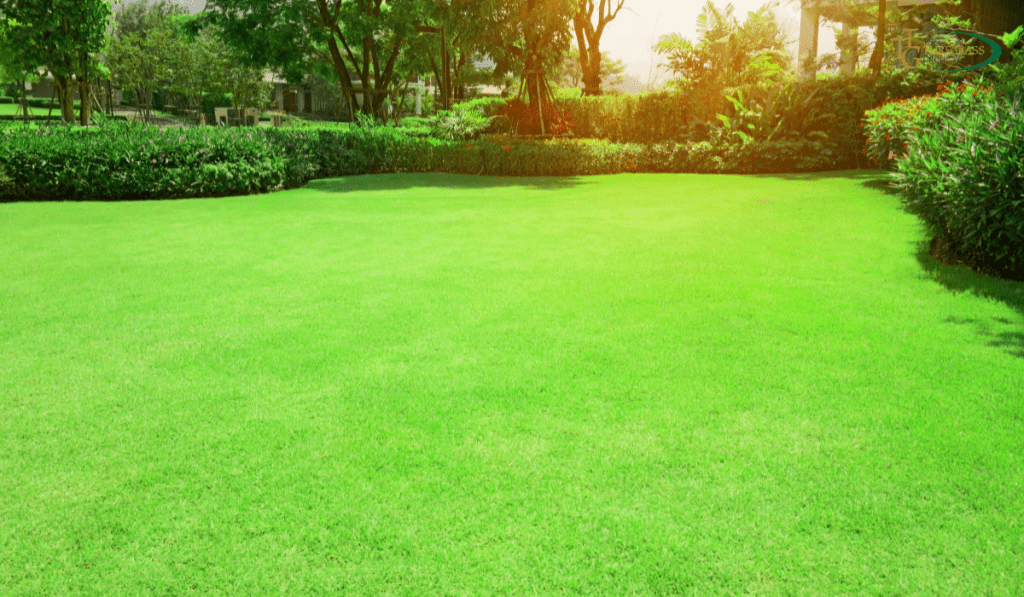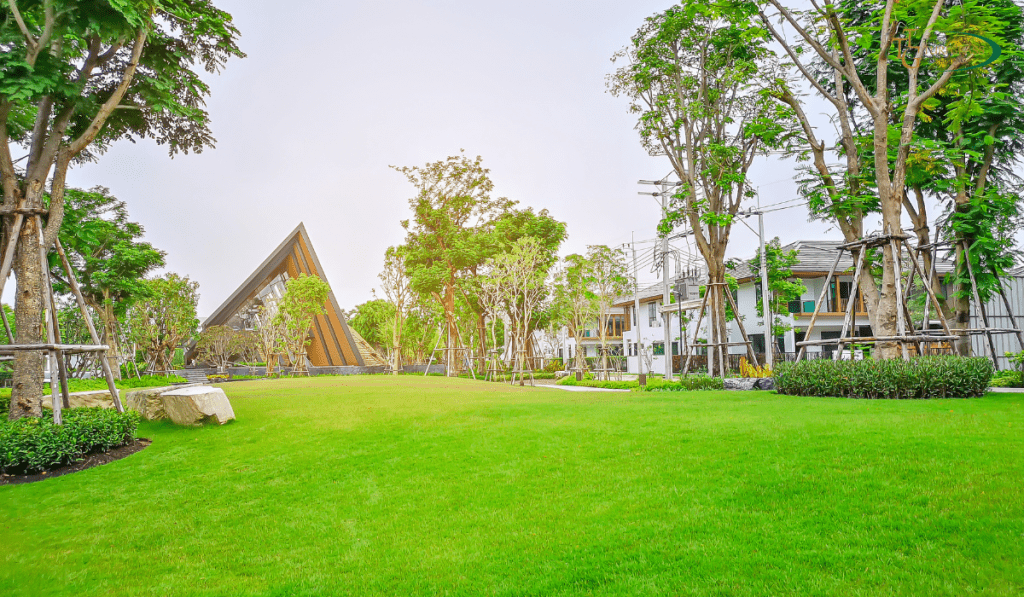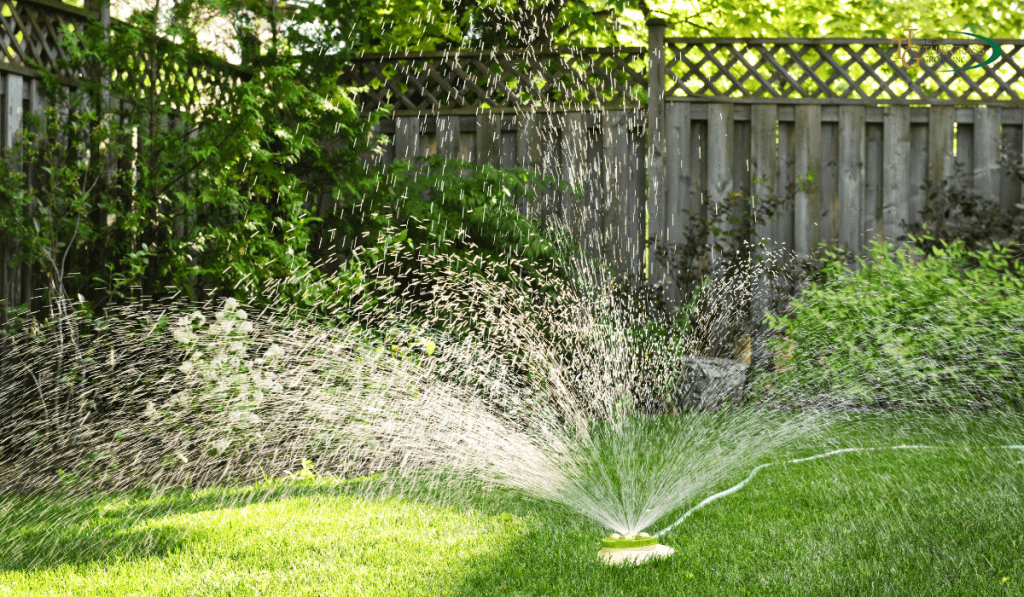
Choosing the right types of grass for your lawn is crucial to achieving a lush and beautiful outdoor space. When comparing Zoysia grass and Bermuda grass, understanding their characteristics and differences can help you make an informed decision. So let’s dive into the details & explore the battle between Zoysia grass and Bermuda grass.
Importance Of Choosing The Right Type Of Grass For Your Lawn
The types of grass you choose for your lawn play a significant role in its overall appearance and maintenance requirements. Factors such as climate, soil conditions, desired aesthetics, and intended usage should be considered when making this decision. Let’s explore the importance of selecting the right grass for your needs.
Pros And Cons Of Zoysia Grass
Zoysia grass is known for its dense growth, durability, and attractive appearance. It thrives in warm climates and tolerates drought, heat, and foot traffic. However, Zoysia grass has a slower growth rate, requires adequate sunlight, and can be more expensive to establish compared to other grass types. Let’s examine the pros and cons of choosing Zoysia grass for your lawn.
Pros And Cons Of Bermuda Grass
Bermuda grass is a popular lawn choice due to its excellent heat and drought tolerance, rapid growth, and ability to repair itself. It is resilient and can withstand heavy use, making it ideal for sports fields and high-traffic areas. However, Bermuda grass has aggressive growth and can invade garden beds if not properly contained. It also requires more frequent mowing and may not thrive in shaded areas. Let’s explore the pros and cons of Bermuda grass.
Zoysia Vs. Bermuda Grass
When comparing Zoysia grass and Bermuda grass, several factors come into play. Zoysia grass offers a dense and carpet-like appearance, while Bermuda grass has a finer texture. Once established, zoysia grass requires less water and fertilizer, but Bermuda grass has better wear tolerance. The choice b/w the two depends on your specific preferences and the conditions of your lawn. Let’s delve into the comparison between Zoysia and Bermuda grass.
How To Choose The Best Grass For Your Lawn?

Choosing the best grass for your lawn involves considering various factors. Assess your climate, soil type, level of maintenance you’re willing to provide, and the specific characteristics of different grass types. Consulting with local experts and considering real-life examples can help you make an informed decision. Let’s explore how to choose the best grass for your lawn.
Zoysia Or Bermuda Grass: Which One Did You Choose?
The ultimate decision between Zoysia grass and Bermuda grass boils down to personal preferences and the unique requirements of your lawn. Through a thorough analysis of the benefits and drawbacks, coupled with a thoughtful assessment of your desired lawn appearance, maintenance capabilities, and local climate conditions, you can confidently arrive at an informed decision that best suits your specific needs and goals. But, first, discuss which one you should choose—Zoysia or Bermuda grass.
FAQs
What are the disadvantages of Zoysia grass?
Disadvantages of Zoysia grass include its slower growth rate, higher establishment cost, and potential invasiveness into garden beds if not properly contained. Additionally, Zoysia grass may struggle in shaded areas.
Does Zoysia grass need more water than Bermuda grass?
Once established, Zoysia grass requires less water compared to Bermuda grass. Its deep root system tolerates drought better and reduces the need for frequent watering.
What are the drawbacks of Bermuda grass?
Drawbacks of Bermuda grass include its aggressive growth, which can invade garden beds and require more frequent mowing. It may also struggle in shaded areas and requires more nutrients and water.
What are the pros and cons of Zoysia grass?
Pros of Zoysia grass include its dense growth, durability, good heat and drought tolerance, and attractive appearance. Cons include slower growth, higher establishment cost, and potential invasiveness.
Will Zoysia choke out Bermuda?
Zoysia grass has a dense growth habit that can potentially choke out Bermuda grass if they are nearby. Therefore, proper containment and maintenance practices are necessary to prevent one grass type from overtaking another.
Do you need to mow Zoysia grass?
Yes, Zoysia grass requires regular mowing to maintain its optimal height and appearance. The recommended mowing height for Zoysia grass is typically between 1 and 2 inches.
Should you winterize Zoysia grass?
Winterizing Zoysia grass involves proper preparation before the cold season. This includes reducing nitrogen fertilization, gradually reducing mowing height, and avoiding heavy foot traffic to help the grass enter dormancy in good condition.
Will Zoysia choke out other grass?
Zoysia grass has the potential to choke out other grasses due to its dense growth habit and aggressive nature. Therefore, proper containment and maintenance practices are necessary to prevent it from spreading into unwanted areas.
Can you mix Zoysia with Bermuda?
Mixing Zoysia grass with Bermuda grass is possible but requires careful planning and maintenance. Creating distinct boundaries between the two grass types and implementing proper care practices are essential to maintain the desired aesthetics.
Is Bermuda cheaper than Zoysia?
Bermuda grass is generally more affordable than Zoysia grass. However, the overall cost can vary depending on factor such as the size of the area, installation method (seeding, sodding, or plugs), and local availability.
Will Zoysia grow in hard soil?
Zoysia grass can tolerate a range of soil types, including hard soil. However, it may establish more slowly in compacted or poor-draining soil. Improving soil conditions through aeration and proper soil preparation can aid in Zoysia grass establishment.
Why is Bermuda grass so popular?
Bermuda grass is popular due to its excellent heat and drought tolerance, rapid growth, ability to repair itself, and overall resilience. It is commonly used for sports fields, golf courses, and high-traffic areas.
Is Bermuda grass high maintenance?
Bermuda grass can be considered moderately high maintenance compared to some other grass types. However, it requires frequent mowing, regular watering, and additional care to prevent it from invading garden beds or adjacent areas.
What kills Bermuda grass permanently?
Killing Bermuda grass permanently can be challenging. Options include:
- Using non-selective herbicides.
- Solarization (covering the area with plastic to trap heat).
- Manually removing the grass and its roots.
Multiple treatments may be necessary for complete eradication.
What is the softest grass to walk on?
Zoysia grass is often considered one of the softest grass types to walk on due to its dense growth habit and fine leaf texture. In addition, it provides a comfortable feel underfoot.
What is better than Bermuda grass?

The “better” grass type depends on your specific needs and preferences. Some alternatives to Bermuda grass include Zoysia grass, St. Augustine grass, and Buffalo grass. Each has its characteristics and suitability for different climates and conditions.
Does Bermuda grow faster than Zoysia?
Bermuda grass generally has a faster growth rate compared to Zoysia grass. Its rapid growth and quick recovery from damage make it a popular choice for high-traffic areas and sports fields.
Does Zoysia grass attract bugs?
Zoysia grass is not particularly known for attracting bugs. However, like any lawn, it can provide a habitat for certain insects. Regular maintenance, proper watering, and pest control practices can help minimize any insect-related issues.
Is Bermuda or Zoysia softer?
Zoysia grass is often considered softer than Bermuda grass due to its dense growth habit and fine leaf texture. However, the perceived softness can vary depending on the specific variety and maintenance practices.